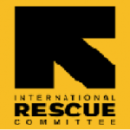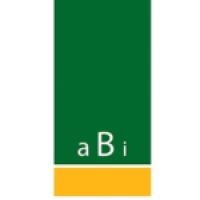The International Rescue Committee (IRC) is a leading humanitarian and development organization working in more than 40 countries and 26 U.S. cities to help people whose lives and livelihoods are shattered by conflict and disaster to survive, recover and gain control of their future.
The IRC has been operating in South Sudan since 1989. Our programs have provided critical Health, Nutrition, Protection and Rule of Law, Child Protection, Education and Economic Wellbeing (EWB) services in eleven field sites, covering five of the ten states and one administrative area. With two offices in Northern Bahr el Ghazal- NBeG (Aweil East and South), five offices in Unity State (Bentiu, Koch, Mayendit, Ganyliel and Nyal), one in the Ruweng Administrative Area (Jamjang) covering operations in the Ajuong Thok and Pamir Refugee Camps and the host community, one office in Rumbek town covering the whole of Lakes, one office in Maban covering the refugee response and one field office in Central Equatoria (Juba)-urban programming together with the Country office.
Background and objectives of EFASS
FCDO funded Education For All South Sudan (EFASS) will directly support 350,000 girls and children with disabilities nationwide to access education through cash transfers, whilst investment in behavior change, in-service teacher training, and catch-up classes will improve both access and learning for many more nationwide. Systems strengthening and incentivising greater ownership of, and investment in, the education sector by the Government of the Republic of South Sudan will help strengthen the social contract and build functioning education institutions to enable future development. Geographically targeted pilots, including an innovative health co-investment, will support life skills development, address additional barriers faced by children with disabilities, enable improved resilience (including to climate shocks), and support peacebuilding, including to help prevent drop-out. EFASS aims to build on the existing success of the multi-donor platform which was established under the Girls’ Education South Sudan Program to continue current coordinated donor investment in shared sectoral priorities.
EFASS will target the following two outcomes:
• Children, especially girls and those living with disability, can safely access 12 years of quality education which equips them with the knowledge and skills they need to thrive.
• Quality of education is improved through increased investment (including as a result of increasing government budget allocation and execution) and strengthened national policy in areas critical to inclusion.
Scope of Work
The Monitoring, Evaluation & Learning (MEAL) Lead is senior position which requires outstanding leadership, strategic thinking, and organizational, team-building and representational skills. As a member of the Project’s Senior Management Team, the MEAL Lead will be responsible for developing and implementing the project’s MEAL strategy, in accordance with IRC, FCDO, and international best practice. The MEAL Lead will work closely with the Project Director and technical staff to ensure that relevant data is collected, analyzed, and used to inform management and design decisions, and to provide project updates, as required.
Job Responsibilities:
• Develop and manage a monitoring and evaluation system across all project components that leverages qualitative and quantitative methods, and draws from a variety of data sources to measure progress and evaluate impact, as well as support collaboration, learning, and adaptation;
• Communicate information obtained through M&E activities to program staff, and external stakeholders, including FCDO, to enable informed decision making;
• Ensure data collection process is functioning in all activity locations to provide quality, timely data; using IRC recommended technology platforms and tools.
• Regularly review data collection processes, perform data quality assessments, and make adjustments as needed;
• Conduct regular visits to project sites, as possible, to provide technical assistance and ensure proper monitoring of project activities;
• Produce M&E monthly, quarterly, semi-annual and annual reports, as needed and on-time.
• Contribute to regular project cycle meetings in which MEAL data is reviewed for decision making by program stakeholders;
• Train and supervise a team of MEAL (Managers/Coordinators) to collect high quality program data;
• Contribute to IRC staff and partners’ capacity building on MEAL best practices.
Requirements:
• Advanced degree (master’s or doctorate) from an accredited university in social science, international development, evaluation research, statistics, or a related discipline required; equivalent experience may be substituted for graduate degree;
• Minimum of 10 years of experience in MEAL for similar Education programming. Experience with projects designed to improve education in South Sudan preferred;
• Significant previous experience carrying out M&E activities in hard-to-reach provinces and districts, preferably for FCDO funded projects;
• Experience working in South Sudan on Education programming
• Strong negotiation skills and the ability to develop relations with local counterparts, donors, and other stakeholders;
• Strong communication skills, both oral and written in local tongue used in the location (s);
• Fluency in English required
Please note that the JD is high level and indicative only at this stage and may be subject to change once the Terms of Reference for the program is released and as the opportunity develops. This position will be contingent on the outcome of the bid.
Safety & Security Situation: All staff must comply with all IRC South Sudan by security policies and procedures.
Standards for Professional Conduct: The IRC and IRC workers must adhere to the values and principles outlined in IRC Way – Standards for Professional Conduct. These are Integrity, Equality, Service, and Accountability. In accordance with these values, the IRC operates and enforces policies on Beneficiary Protection from Exploitation and Abuse, Child Safeguarding, Anti Workplace Harassment, Fiscal Integrity, and Anti-Retaliation.
IRC is an Equal Opportunity Employer IRC considers all applicants based on merit without regard to race, sex, color, national origin, religion, sexual orientation, age, marital status, veteran status or disability.











